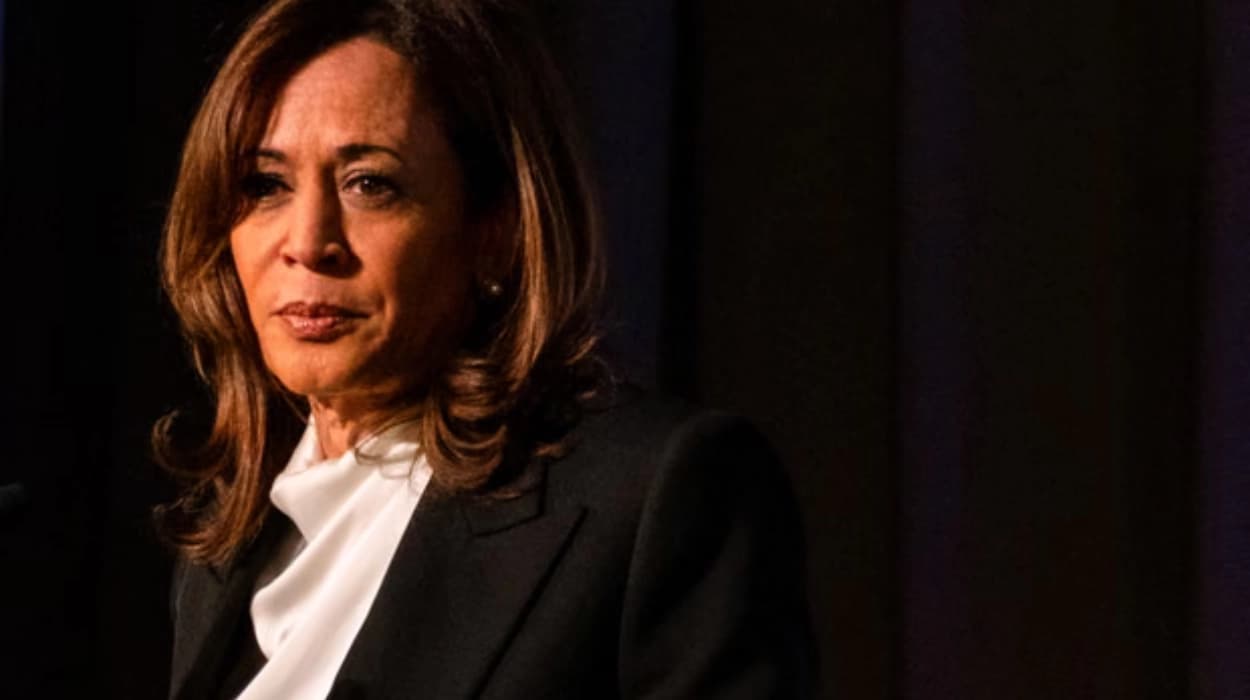Summary
- Kamala Harris will not run for California governor.
- She is former vice-president and 2024 nominee.
- The decision leaves the California governor race wide open.
- Harris' choice shifts Democratic contest dynamics significantly.
- The race now lacks a major high-profile candidate.
After departing the White House in January, Harris, 60, who was previously California's attorney general and US senator, had been considering a bid for the state's top position. However, "after deep reflection, I've decided that I will not run for governor in this election," she stated in the statement. After failing campaigns in 2020 and 2024, the decision does not preclude a future run for public office, even a third attempt at the White House.
“For now, my leadership – and public service – will not be in elected office,”
Harris said in a statement, ending months of speculation about her political future after losing the 2024 presidential election to Donald Trump.
“I look forward to getting back out and listening to the American people, helping elect Democrats across the nation who will fight fearlessly, and sharing more details in the months ahead about my own plans,”
she added.
With early polling indicating she was Californians' top pick, her impending decision effectively froze the contest to replace Democratic Governor Gavin Newsom, who was term-limited. The election of Harris as California's leader will now take place in a political environment that has been drastically altered by her defeat by Trump in November, which sent the party into a state of introspection and paralysis.
The Democratic base has been more and more incensed with its current leadership in the months that have followed, calling for new leadership and a more aggressive stance against what they perceive to be Trump's increasingly authoritarian agenda.
In a nod to the discontent roiling her party, and the country, Harris said: “We must recognize that our politics, our government, and our institutions have too often failed the American people, culminating in this moment of crisis. As we look ahead, we must be willing to pursue change through new methods and fresh thinking – committed to our same values and principles, but not bound by the same playbook.”
Although fans who wanted to see Harris challenge Trump once more in the last years of his presidency were disappointed by the decision, Harris had not shown much enthusiasm for the idea of running the state from the governor's seat in Sacramento.
The Democratic candidates for governor in California are primarily long-serving or well-known political figures, such as Xavier Becerra, the former attorney general of California who worked alongside Harris as the secretary of health and human services in Biden's cabinet, Antonio Villaraigosa, the former Democratic mayor of Los Angeles, Eleni Kounalakis, the state's lieutenant governor, and Katie Porter, a former congresswoman.
The two most well-known Republicans in the contest are Steve Hilton, a former Fox personality and advisor to former UK Prime Minister David Cameron, and Chad Bianco, the sheriff of Riverside County. Another longtime Trump supporter who has considered running is Ric Grenell.
In a statement, Villaraigosa commended Harris’s leadership and said her decision “reflects her continued commitment to serving at the highest levels of government”.
“We face critical challenges in California – and we need a proven problem solver to tackle our affordability crisis,”
he said.
“Kamala Harris’s political career is over thanks to President Trump,”
said Kollin Crompton, a spokesperson for the Republican Governors Association, adding, perhaps prematurely:
“Americans across the country can sigh in relief that they won’t have to see or hear from Kamala Harris any longer.”
Since moving back to her hometown of Los Angeles, Harris had kept a low profile and given few indications about her political future. As protests broke out in response to the Trump administration's immigration raids in Los Angeles earlier this summer, she stayed largely out of sight. She called the protest "a powerful tool" and expressed solidarity for the "millions of Americans who are standing up to protect our most fundamental rights and freedoms" in a statement released after Trump authorized the deployment of national guard troops in Los Angeles.
When criticizing the activities of the Trump administration, she has been selective. In a scathing address earlier this year, Harris warned that the US president was exhibiting a "wholesale abandonment of America's highest ideals."
On Wednesday, Harris vowed to remain politically engaged.
“We, the People must use our power to fight for freedom, opportunity, fairness, and the dignity of all,”
she said.
“I will remain in that fight.”
What are Kamala Harris's reasons for not running for governor now?
Kamala Harris has decided not to run for governor of California in the 2026 election after serious consideration and deep reflection. She expressed a deep affection for California and its people but concluded that her leadership and public service for the time being will not take the form of elected office.
Instead, she plans to focus on engaging with the American public, helping elect Democrats nationwide, and sharing more about her future plans in the coming months. Harris left the door open for possibly running for president in 2028.
Her decision reflects a desire to pursue change through new methods and fresh thinking, acknowledging that politics, government, and institutions have often failed the American people, leading to a moment of crisis.

